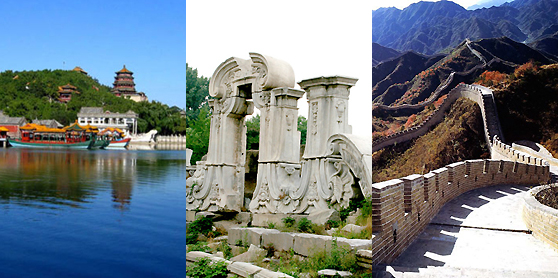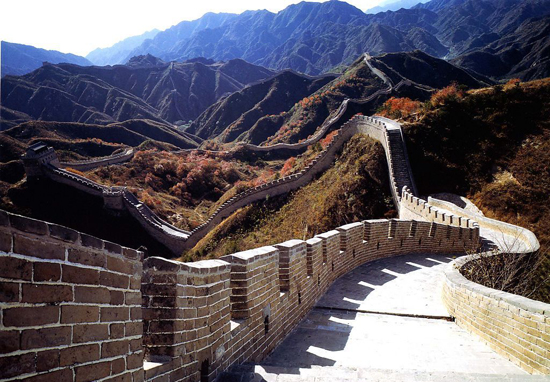Top 15 attractions in Beijing, China
- By Xu Lin
 0 Comment(s)
0 Comment(s) Print
Print E-mail China.org.cn, May 29, 2012
E-mail China.org.cn, May 29, 2012
The Great Wall(長城)
|
The Great Wall [nipic.com] |
"You are not a true man if you have not been to the Great Wall." So the saying goes in China. The Great Wall, it is said, is one of the few man-made objects on earth visible from space.
From Shanhaiguan, northeast of Qinhuangdao City in Hebei Province on the east coast, the Great Wall rises and falls with the contours of the mountains spanning westwards, crossing nine provinces, municipalities and autonomous regions over 6,700 kilometers (4163.19 miles), to end at Jiayuguan, southwest of Jiayuguan City in Gansu Province.
The Great Wall was a daunting defensive project used in ancient times as early as in the 7th century B.C. For self-protection, rival kingdoms built walls around their territories, laying the foundation for the present Great Wall. When Emperor Qin Shihuang unified the whole country in 221 B.C., the existing walls were linked up and new ones added to counter attacks by the remnants of defeated states.
The Great Wall comprises walls, passes, watchtowers, castles and fortresses. The walls are made of large stone blocks. From east to west, the sections at Shanhaiguan, Jinshanling, Mutianyu, Badaling and Jiayuguan have become popular tourist attractions.
Most of The Great Wall that we see today dates back to the Ming Dynasty. The best-preserved and most imposing section is at Badaling in Beijing. This section, located at the head of the Juyongguan Pass, is made of large blue bricks and has an average height of 7.8 meters. Five to six horses can be ridden abreast along it. At regular intervals there is an arched door giving access to the top of the wall. The walls feature regular lookout holes, window embrasures and castellated crenels. Beacon towers for passing on military information also appear at fixed intervals. All of these emphasize the important role of the Great Wall in military defense.
As one of the most magnificent ancient defense works, the Great Wall was included in the World Cultural Heritage List in 1987.
Admission (Badaling Great Wall): 45 yuan (US$7.09)/person (summer);
40 yuan (US$6.3)/person (winter)
Go to Forum >>0 Comment(s)








